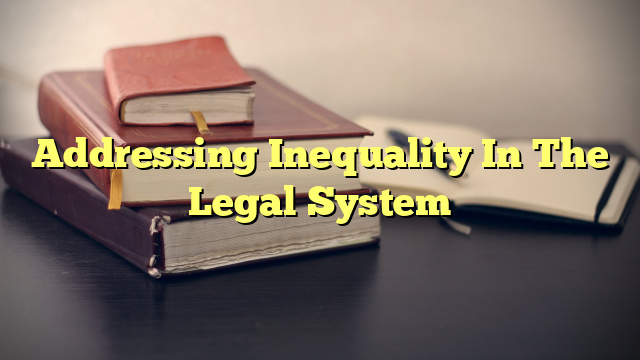Table of Contents
- What is Inequality
- Does the Legal System Treat Everyone Equally?
- Laws to Address Inequality
- Example of Inequality that Needs to be Addressed
What is Inequality
Inequality is the unequal treatment of individuals on the basis of their race, gender, economic status, religion, or any other factor. Inequality is an ingrained feature of many societies, and is a reality that has been faced by people throughout history. Inequality can manifest itself in many different ways, including unequal access to resources and opportunities, unequal pay, and unequal treatment in the legal system.
Does the Legal System Treat Everyone Equally?
Unfortunately, the answer to this question is no. Inequality is deeply embedded in the legal system. There are many ways in which this is true, from biased prosecutors, to unequal sentencing, to racially-motivated stop and frisk practices. Unfortunately, this inequality is not limited to the criminal justice system. There is also inequality in areas such as family law, employment law, and access to housing.
Laws to Address Inequality
Fortunately, there are laws in place to help address the inequality that exists in the legal system. These include laws such as Title VII of the Civil Rights Act, which prohibits discrimination based on race, sex, or national origin in employment and education, and the Fair Housing Act, which prohibits discrimination in housing. Additionally, there are laws that address inequality in the criminal justice system, such as the Sentencing Reform Act, which created federal sentencing guidelines that allow for more equitable sentencing across cases.
In addition to laws, there are also initiatives that are designed to address inequality in the legal system. For example, the U.S. Department of Justice’s Community-Oriented Policing Services (COPS) program provides grants to police departments to help improve community-police relations and address inequality in policing.
Example of Inequality that Needs to be Addressed
One example of inequality that needs to be addressed in our society is the wage gap between men and women. Despite advances in women’s rights, women still earn significantly less than their male counterparts. The wage gap is a reflection of both the systemic discrimination that women face in the workplace, as well as the fact that women are often undervalued and underpaid for their work. It is important that we address this inequality in order to ensure that all individuals are treated equitably in the workplace.
Conclusion
Inequality is a pervasive problem in our society, and it is especially evident in the legal system. Fortunately, there are laws and initiatives in place to help address this inequality. It is important that we continue to work to ensure that all individuals are treated equally in the legal system, and in our society as a whole.
Q: What is the best way to address inequality?
A: The best way to address inequality is through laws, initiatives, and other efforts that promote equality in all aspects of society. This includes laws that prohibit discrimination based on race, gender, or other factors, initiatives that seek to improve community-police relations, and efforts to ensure that all individuals are fairly compensated for their work. Additionally, it is important to raise awareness about inequality and work to educate people about the importance of promoting and advocating for equality.


The legal system has some troubling systemic issues. Unfortunately, this article doesn’t tackle the root causes of inequality.
Reducing disparities in the legal system is key for a fairer society. We must advocate for #equalityinlaw.